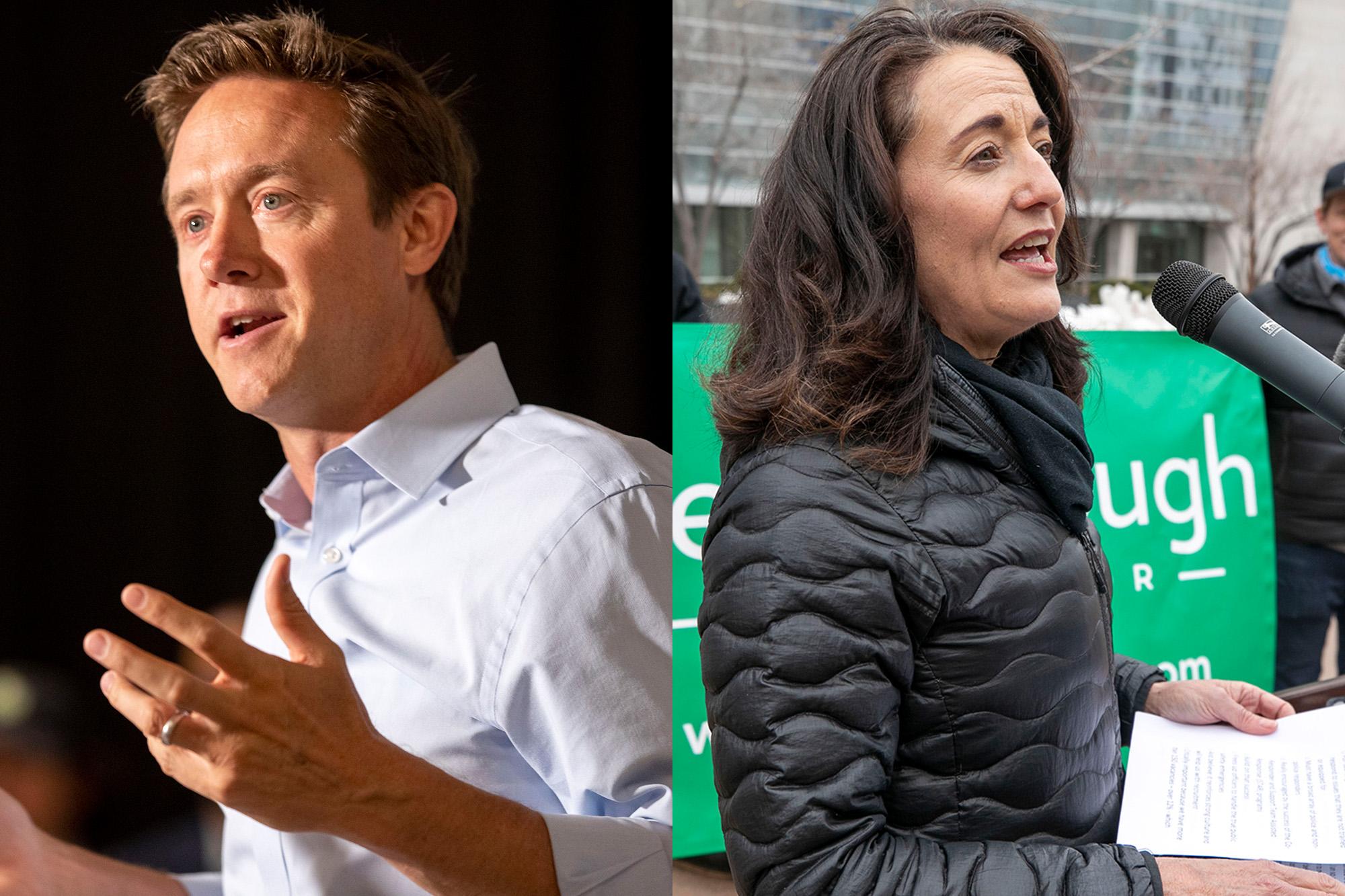Mayoral finalists Kelly Brough and Mike Johnston see promise in Denver. But when asked about the racist legacies of organizations they've been a part of -- the Yale secret society Skull and Bones for Johnston and the Denver Metro Chamber of Commerce for Brough -- they each had to be pressed for a direct response.
When Denverite asked more than 100 residents what they cared about from people running for office, they told us the following: housing and affordability, crime and public safety, education, environment, health and wellness and transportation.
Worry number seven: trust in government. Denverites want transparency.
"Anyone who wants to lead and who has been a part of organizations that have an obviously problematic history, they have an obligation to acknowledge that history and to really thoughtfully look at that history," said Nicki Gonzales, Colorado's former state historian, a member of the State Historian's Council and a Regis University professor.
She's a member of the Colorado Geographic Renaming Advisory Board. That's the group reconsidering the names of mountains and buildings that honor perpetrators of racist projects that shaped who is -- and isn't -- thriving in the state.
Gonzales said she would invite both candidates to explore the structural racism and histories of organizations they've participated in -- and the city they hope to lead.
Last week, the New York Sun, a conservative-leaning online newspaper, published a story about how Johnston was a Bonesman.
The headline on the piece: "Rising Democratic Star Mike Johnston Is a Populist Man of the People: Just Don't Ask About His Membership in Yale's Skull and Bones."
There's a lot to question in there.
A few years ago, maybe Johnston was a "rising Democratic star." But after losing the 2018 race to be Colorado's governor and withdrawing from the 2020 Senate race to make way for Denver's former mayor, John Hickenlooper, Johnston's star's not exactly been shining. For a while there, it lost its luster, as he went to work in the private sector to run Gary Community Ventures.
If he becomes Denver's mayor, it's not because his trajectory has been upward for the past half a decade. He'll have enjoyed a bounceback of epic proportions.
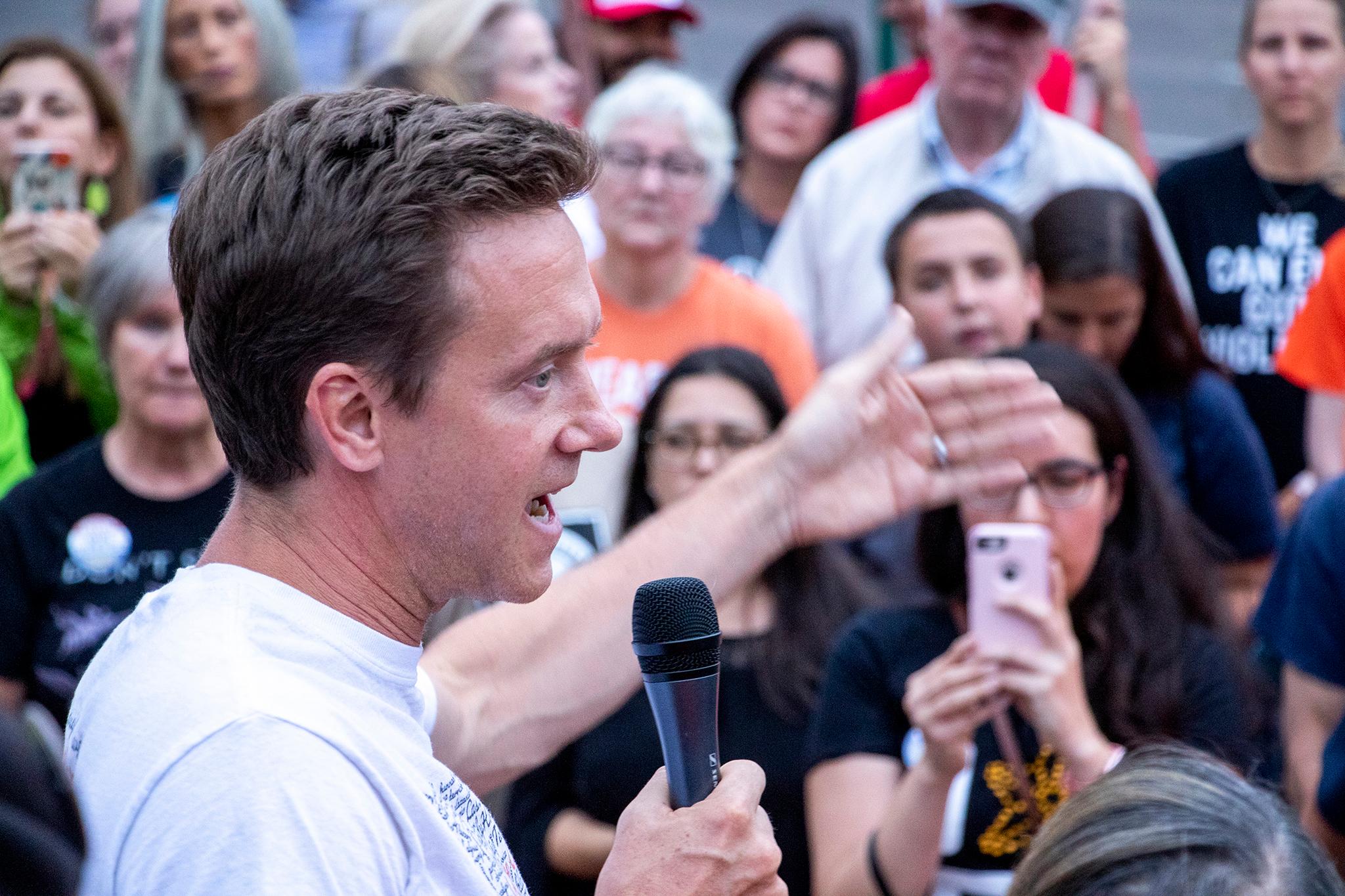
Also: "populist man of the people?"
From Vail to Yale, Johnston's life has been full of privilege. He's a white man. He was a competitive skier. A theater kid. A son of a mayor. A principal. He holds bachelor and law degrees from Yale and a masters of education from Harvard.
All that raises some doubt about the New York Sun headline: Was Johnston even in Skull and Bones? And if so, will he really not answer questions about it?
The New York Sun reporter shared a photo of the ledger with Johnston's full name, date of birth and address. That got Brough's supporters trolling Johnston on social media, demanding transparency about whether he was actually a member and an apology about the supposedly secret society's racist past.
Skull and what?
Founded in 1832, four decades before Colorado became a state, Skull and Bones is a group of Yale students and alums with their own building, the Tomb, on the Yale campus. Each year, 15 seniors are tapped to join. And members go on to do big things. Presidents William Howard Taft, George H. W. Bush and George W. Bush are among the organization's members, as are titans of industry, heads of banks, editors, writers and more.
Allegedly, members have to either remain silent or leave a room when asked whether they belong to the group.
And rumors about the group are unsavory.
In 1918, George W's grandfather Prescott Bush, once a member, may or may not have helped steal Apache warrior Geronimo's skull, which may or may not be in the Tomb. Geronimo's family unsuccessfully sued the organization and Yale over it. A letter discovered in 2005 seemed to lend some truth to the claim, but the attorney representing the family said in 2009 that he had no hard evidence to back the suit.
Their case was thrown out because the alleged theft occurred before 1990, the year federal law prohibited new finds and excavations of Indigenous cultural artifacts.
But nothing's stopping the organization from addressing the history and returning the man's skull, if they have it.
"Even though something might be legal, it doesn't mean they shouldn't do the right thing," Gonzales said, acknowledging nobody knows whether the skull in the Tomb is actually Geronimo's.
Then there's the not-so-rumored segregationist history of Skull and Bones. Skull and Bones was whites-only until 1965 -- integrated almost a decade ahead of when the Supreme Court forced Denver Public Schools to do the same. The organization also didn't accept women until the early '90s -- and only after a legal fight.
After the New York Sun article came out, Brough supporters slammed Johnston for being a part of a secret elite organization.
We asked. Johnston said he was. Plain and simple. He hung around and talked, and we lived to tell about it.
"I was a member," Johnston said. "It has already been disclosed. It was fully diverse -- accepted people of all genders, all backgrounds."
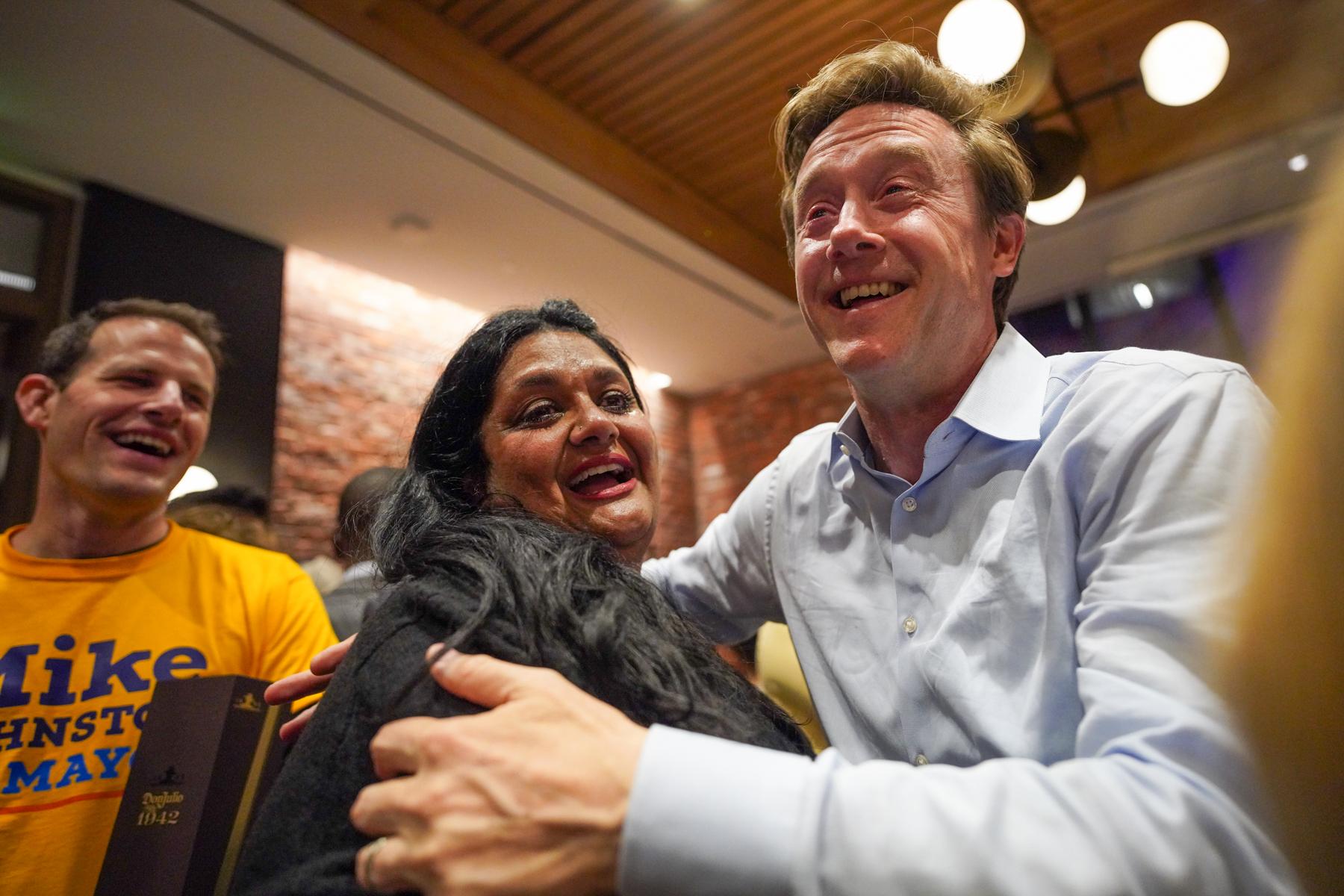
"I joined it because we knew it was diverse. It's a common practice on campus there," he continued. "There are hundreds of senior clubs... It's not so mysterious or dramatic. It's kind of a senior social club with folks of all backgrounds."
What did he do in the group?
"Hang out late into the night and debate late into the night about silly stuff, and it's fun," he said.
World domination? Tomb raids? "Nothing so dramatic or exciting," he said.
So what impact will his membership have on Denver?
"Nothing," he said. "Entirely nothing. It's no different than what your college fraternity means for the City of Denver. It's friends that you had in college. You like them. You're close, and they're doing their own thing, and you're doing your own thing. But it has no impact on the City of Denver."
As for the racist legacy of the organization?
"I acknowledge the group's history, but that wasn't my experience," Johnston wrote in a statement. "By the time I was a member, the group was racially diverse and open to all genders, as it is today."
When asked about Geronimo's skull, Johnston had nothing direct to say.
"Rather than talking about the clubs I joined in college, we should be focused on Denver's challenges around homelessness, affordability, and public safety and how we will make Denver a city that works for everybody."
Gonzales said that while acknowledging the alleged skull theft is not something Johnston might have any power or influence over, "he could acknowledge that, if that were the case, then the organization should think about giving it back."
But Brough's campaign insists Johnston's Skull and Bones membership is a big deal.
"Admitting to being a member of an elitist secret society with a long history of racism and misogyny should raise a big red flag for all of us - and calling it inclusive is disingenuous," Brough campaign spokesperson Nico Delgado wrote in a statement.
"This is an organization established to keeping elite white men in power, and Mike has long benefitted from the network of wealthy, out-of-state billionaires to fund his campaigns for governor, senate, and now mayor," Delgado added.
Johnston has raised the most money in the race with plenty of out-of-state billionaire support. Have Bonesmen been financing Johnston's campaign?
"No, no," he said. "I think I'd probably have done much better with my college soccer team. My college theater mates are probably better on that front. Because I was in theater in college, too. And so yeah, you have your friends of different backgrounds, but they are no special force."
The top contributors to Johnston's independent expenditure committee -- Linked-In founder Reid Hoffman, DaVita's former CEO Kent Thiry, hedge fund manager Steve Mandel and real estate investor Reuben Munger -- appear to have no ties to Yale or Skull and Bones.
Supporters of Johnston came to his defense, arguing it's unfair to punish him for being in a student group he joined decades ago.
But Gonzales, a Yale alumn, said Skull and Bones is comprised of the children of wealthy and powerful families and the networks established there are lifelong.
"Skull and Bones is not just any fraternity," she said. "He should acknowledge that it's a very privileged organization, and he'll carry that for his entire career."
Would that powerful network benefit Denver, were he to become mayor?
"It's a good network to belong to, a very powerful network to belong to," said Gonzales. "Whether or not it's a good thing for Denver would depend on how I guess he chooses to use that privilege and those connections... There's a moral question, too -- especially for a city like Denver that is gentrifying and developing so quickly for the benefit of some and not others."
Brough's campaign cautioning Denverite that people who belong to groups with "a long history of racism" should "raise a big red flag for all of us" got us thinking. Brough was the head of the Denver Metro Chamber of Commerce for 12 years. What's that organization's history?
Over a decade before Colorado achieved statehood and three decades after Skull and Bones formed, what's now the Chamber was founded as the Board of Trade in part by John Evans, governor of the Colorado Territory, and William Byers, the founder of the Rocky Mountain News. Both men spent much of the 1860s championing wars against Native people.
The Board of Trade was formed to bring the railroad to Denver, turning the city into an industrial hub and solidifying European expansion across the west, obliterating Native homelands.
"For Indigenous communities, the railroad went right through their lands and affected buffalo herds," Gonzales said.
Settlers would hunt buffalo from train cars, she said.
"You have the decimation of a really important resource for Native communities which changed the culture, weakened them," she said. "It had profound effects for everybody, including the natural environment, because now extractive industries could mine and then take coal to different parts of the country."
Both Evans and Byers pushed for volunteer militias to arm themselves against the Arahaphoe and Cheyenne people -- communities who lived in the area long before white settlers arrived. One of those militias inspired by Byers and Evans, the Third Regiment, participated in the murder at least 230 Native people -- mostly children, elders and women -- at Sand Creek. The people's body parts were paraded through the streets of Denver, and whites trying to form a city on Native lands were thrilled.
Byers and Evans went on to defend the massacre for years to come, long after the founding of the Board of Trade changed its name to the Chamber of Commerce.
A few decades later, the Chamber of Commerce was also listed in the ledger of the Ku Klux Klan. The Chamber advocated in the press for Japanese people exiled from California to be barred from Colorado. The organization was explicitly pro-segregation but reversed its position in the 1920s. Even so, in the following decades, the organization was accused of ignoring East Denver and Five Points businesses in historically Black neighborhoods.
In Mayor Michael Hancock's years in office, the city has confronted the legacy of Klan mayor Benjamin Stapleton, by renaming the Stapleton neighborhood Central Park. The city renamed the Byers Library the Thunderbird Man Branch. And Hancock apologized for the anti-Chinese riot of 1880.
"Mayor Hancock laid a pretty good foundation through the renaming efforts and some of his other initiatives to acknowledge a really problematic history," Gonzales said.
When asked whether the Chamber or Brough had formally apologized or denounced the business organization's objectively racist past, the campaign offered various examples of work she'd done to support racial equity in the business community.
In 2018, she founded Prosper Colorado, an arm of the Chamber addressing race and gender inequities. She explicitly stated that the Chamber supported racial justice. And she helped launch a CEO social justice pledge dubbed "Colorado Companies Uniting Against Racism."
"Kelly recognizes that racism is wrongly embedded into our systems and institutions today, and that it serves as an unjust barrier for non-white Coloradans," explained Delgado. "While serving as President and CEO of the Denver Metro Chamber of Commerce, Kelly strove to make it a more diverse and equitable organization by reaffirming the commitment to racial justice and creating more opportunities for non-white Coloradans."
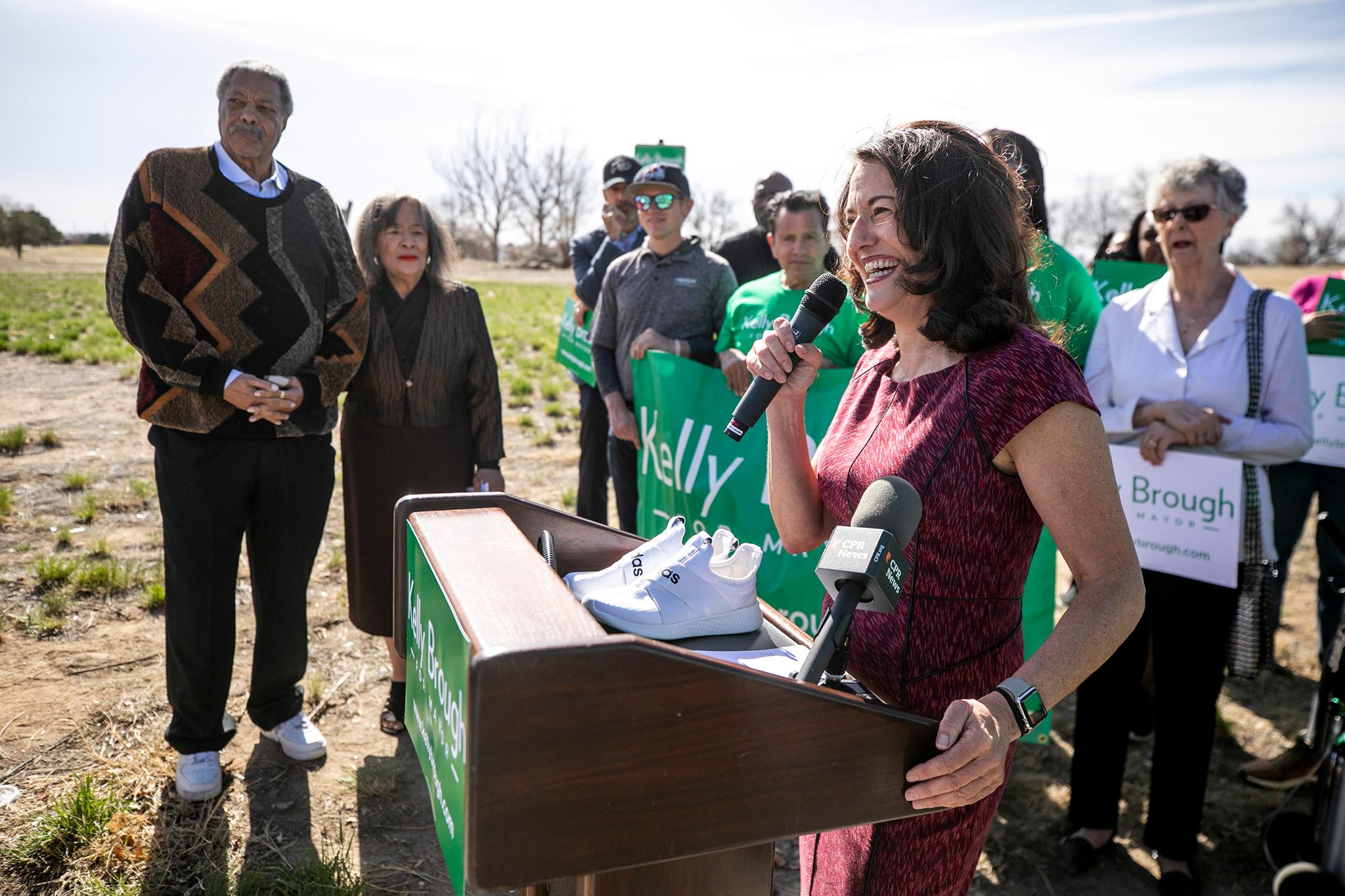
After several back-and-forths with the campaign about whether the Chamber or Brough ever directly addressed the organization's racist history, spokesperson Karen Crummy clarified Brough had not.
It's fuzzy whether Brough was aware of the history of the organization or its founders, but she did not comment directly about either.
"Before Kelly's time at the Chamber, it is unclear if the organization took a stance," Delgado said. "But under Kelly's leadership, the chamber was committed to addressing the inequities created by past wrongs."
We detailed the racist history of the Chamber itself and asked if the organization has ever denounced any of it, apologized for it, or otherwise directly addressed it. This is what spokesperson Cameron Ochse offered: "The Denver Metro Chamber of Commerce has been in existence for more than 156 years and works to create economic empowerment for all Coloradans. The Chamber practices an inclusive approach to serving our members and the community."
Brough led the organization during the summer of 2020, after the killing of George Floyd, as cities, states, nonprofits and businesses nationwide acknowledged their histories of racism.
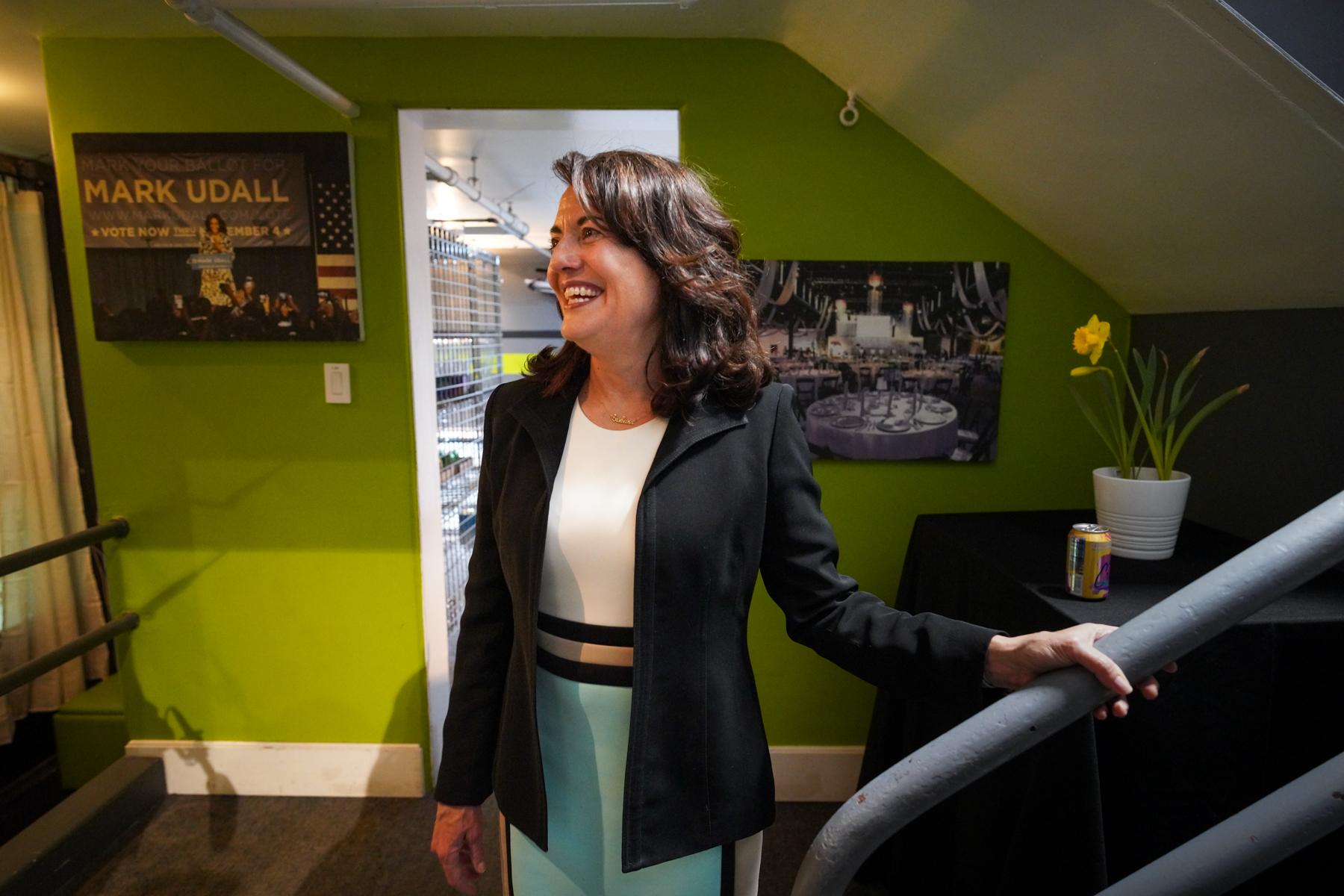
"Post-2020, in this moment of supposed racial reckoning that we're in, we really need to acknowledge that Denver was built on the backs and at the expense of certain populations, and to not acknowledge that in some way is to perpetuate that sort of racism," Gonzales said. "That's not good.
"Even though people might say that's in the past, there are still people who are benefiting from that and still people who are experiencing trauma from that, because of that, because of those situations, because of that history," she added.
Connecting history to current policy can be instructive in how a mayor approaches the future and present actions, Gonzales said.
"If you can't put all those pieces together and build a better society for the greater good, for the people of Denver as a whole, not excluding anybody, then I think you need to take another look at yourself and your motivations for wanting to be mayor," she said.
"The next mayor is going to be challenged to continue those conversations," Gonzales added. "And if they're having trouble addressing those issues now, they're going to have to be pushed a little harder if they become mayor."

